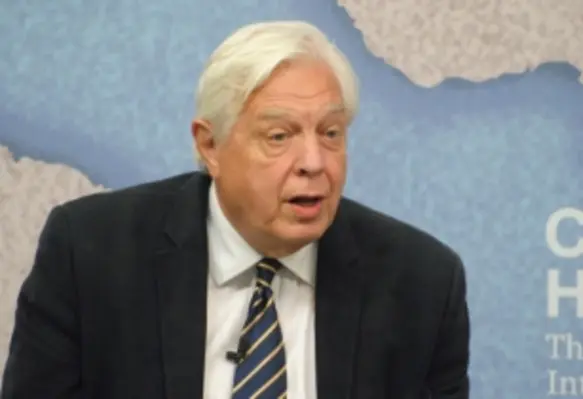The first Global Ministerial Dialogue session at ADIPEC featured ministers from the UAE, Bahrain and Oman discussing the future of hydrocarbons in the region, the growth of renewables and the role of OPEC
HE Suhail Mohamed Al Mazrouei, the UAE Minister of Energy, described the oil industry as "resilient" and urged the conference not to be "scared of renewables". Instead, he called for investment in renewables as well as sustainable investment in oil and gas to help fund further development of alternative forms of energy and meet COP 21 climate change goals.
Minister Al Mazrouei also said that breakthroughs in technology, particularly with unconventional oil and gas extraction and advances in surveys, will make the industry more efficient and sustainable.
HE Dr Mohammed Bin Hamad Al Rumhy, the Oman Minister of Oil and Gas, said, in terms of the low oil price environment: "We are living in a dangerous place and we need to address the issues ahead of us." The issue of subsidies is a real concern, according to Dr Al Rumhy, as well as the oversupply of oil, a resource which is finite. He praised the industry focus on "market stability" rather than "market share" as a frank position to help move the industry forward.
Meanwhile, HE Sheikh Mohammed Bin Khalifa Al Khalifa, the Bahrain Oil and Gas Affairs Minister, said that the price of oil is "the heart rate of the global economy". He referred to the US shale movement as a cause of an "unintended oversupply" and said that the basic principles of supply and demand "will always be with us".
John Simpson, the BBC broadcaster and moderator of the session, asked the ministers if they were optimistic about the future of the oil and gas industry. It became clear that gas is where the growth is, particularly as it is the cleanest of the fossil fuels and it is playing an increasing role in providing access to energy, alongside renewables. Minister Al Mazrouei said that gas needs to be able to compete with solar power and Minister Al Khalifa echoed these sentiments, citing the cheap price of solar energy to consumers.
Dr Al Rumhy pointed out that while gas has great potential to help the estimated 2 bn people across the world who do not have access to reliable sources of energy, it is a difficult fuel to transport but it is a "good alternative" and he praised the growth of the LNG sector for improving transport, particularly across the Middle East and Asia.
"The challenge is to make gas the fuel of choice, to offer hope to the 2 bn people looking for a good source of energy," said Dr Al Rumhy.
In terms of the role o OPEC, Minister Al Khalife and Dr Al Rumhy both said they were "in the neighbourhood, peeking through the keyhole" at OPEC meetings but agreed that the outlook with OPEC's role in reducing oversupply is positive looking ahead.
"They are prepared to be responsible, OPEC was not designed to be a cartel," said Minister Al Khalifa.







